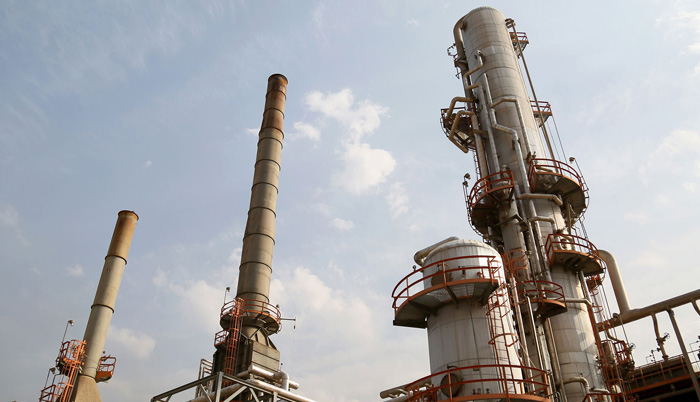![]() Home > World Business
Home > World Business
Why Kurdish Oil Is A Wild Card For Markets: Quicktake Q&A

Photographer: Yunus Keles/Anadolu Agency via Getty Images
![]() March 9th, 2017 | 08:36 AM |
March 9th, 2017 | 08:36 AM | ![]() 1257 views
1257 views
IRAQ
If Iraq’s Kurdish territory were a country, it would probably qualify for OPEC membership. It wouldn’t even be the smallest member, given its production of about 600,000 barrels of oil per day. That’s an impressive achievement for a landlocked enclave that started exploring only a decade ago. The region’s potential is greater still, though it faces political, military and economic challenges to expanding its output.
1. Why does the Kurdish region matter to oil markets?
The semi-autonomous Kurdistan Regional Government says the area’s reserves could total 45 billion barrels, more than Nigeria’s, and Kurdish crude is generally cheap to extract. When foreign investors tramped into the region’s oil fields after the fall of Saddam Hussein’s regime, the crude was so abundant it seeped from the ground beneath their feet. Tony Hayward, former BP Plc boss turned wildcatter, called Iraqi Kurdistan “one of the last great frontiers” in the oil and gas industry as his new company Genel Energy Plc started prospecting there in 2011. Ashti Hawrami, natural resources minister for the KRG, has spoken of increasing exports to 1 million barrels a day or more.
2. Who’s got interests there?
Early discoveries prompted a rush of foreign investment, and by 2014 the Kurdish capital Erbil was a boomtown. The area attracted oil majors including Exxon Mobil Corp., Chevron Corp. and Total SA. Norway’s DNO ASA pumps the most oil there: more than 110,000 barrels a day at the Tawke field, in partnership with Genel.
3. How have they fared?
It’s been a bumpy ride. Crude was selling for more than $100 a barrel from 2011 to 2014. Then prices tumbled, from $115 in June 2014 to less than $60 that December. In the same year, Islamic State militants seized much of northern Iraq. By early 2015, the militants were attacking Erbil and holding a front line just 30 kilometers (19 miles) away. Kurdish soldiers known as Peshmerga fought back successfully, but the war and low oil prices drained the Kurdish government’s coffers. The KRG fell behind on payments to companies in late 2014 and has yet to clear the arrears. Explorers that had bet on the region, such as Genel, Gulf Keystone Petroleum Ltd. and WesternZagros Resources Ltd., lost more than 90 percent of their value. That experience and disputes between the Kurdish government and Iraqi national authorities have kept most big oil companies away and prompted some investors to pull back.
4. What’s the dispute with Baghdad?
Iraq’s Kurds have long chafed against control by Arab-led governments in Baghdad, and they’ve been developing their hydrocarbon industry to enhance their self-sufficiency. Kurdish authorities began offering oil contracts to foreign investors in 2007, against Baghdad’s wishes. The central government then barred companies working with the Kurds from operating in other parts of the country. Baghdad also threatened to sue anyone buying Kurdish crude. When it did just that in Texas in 2014, a U.S. judge blocked a tanker from unloading its cargo of Kurdish oil. The stakes rose that same year when Kurdish forces, defending against the encroachment of Islamic State, occupied oil facilities in the disputed province of Kirkuk. That’s left Baghdad in control of less than half of Kirkuk’s oil.
5. How does the landlocked region export oil?
It relies on a pipeline to the port of Ceyhan in neighboring Turkey to get most of its crude to market. A squabble with the Turks could threaten this commercial artery and end up crippling the Kurdish oil industry. That’s a worry for the KRG, given that Turkey’s own ethnic Kurdish population is engaged in a sometimes violent struggle for greater autonomy, and Turkish troops are squaring up to Kurdish militias in Syria. The KRG’s pipeline also transports some 100,000 barrels a day of oil from federal-run fields in Kirkuk, so this flow, too, could be interrupted by a dispute with Turkey.
6. What’s the outlook for the Kurdish region’s oil industry?
Many of its problems are fading. Oil prices have risen about 20 percent since the Organization of Petroleum Exporting Countries, including Iraq, agreed in November to cut production. Islamic State is in retreat as Iraqi and Kurdish forces, with U.S. support, advance on terrain held by the group. The Kurdish government has started catching up on overdue payments to oil companies. It resolved a disagreement with Baghdad over the shipment of oil from the central government’s Kirkuk fields through the Kurdish export pipeline. And Russia’s Rosneft PJSC agreed in February to pre-purchase two years of crude from the Kurds, becoming the first big oil company to buy directly from them.
The Reference Shelf
Source:
courtesy of BLOOMBERG
by Sam Wilkin
If you have any stories or news that you would like to share with the global online community, please feel free to share it with us by contacting us directly at [email protected]